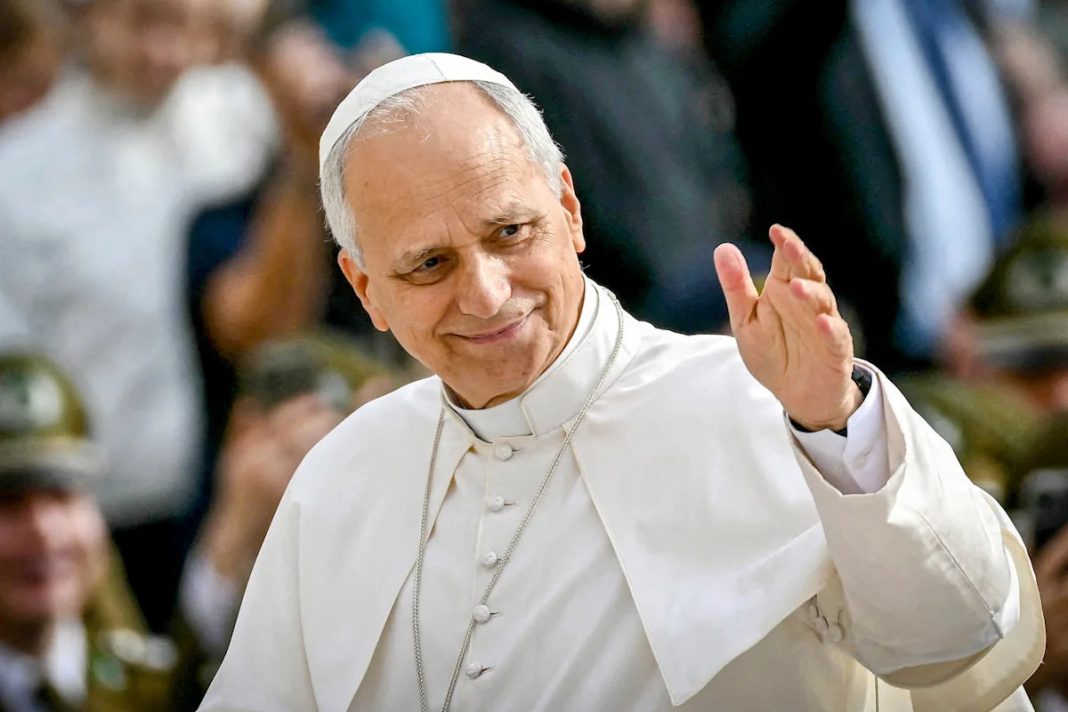This week, a clear, uncompromising picture emerged of Pope Leo: He cares about the plight of migrants, and the United States Conference of Catholic Bishops should, as well. But will it? His comments about the bishops in the United States may have sent a chill down some of their spines. He said, “I wish that they were stronger in their own voice.”
Instead, some bishops appear to be too busy listening to their own voices on television. (Take Cardinal Timothy Dolan, the archbishop of New York, who on a recent Fox News appearance likened Charlie Kirk to the Apostle Paul.)
It’s not that the bishops have been silent about migrants. There have been a number of statements from various dioceses supporting migrants and their care. What the pope is saying is that the American bishops should, as a group, speak out against the injustices being inflicted upon migrants in America.
What he is calling for is their corporate witness as an ecclesial group to defend migrants that doesn’t come from this bishop or that one but can be attributed to the USCCB as a whole. Such a Catholic witness not only would support the Catholic faithful those bishops have promised to serve, but it would also serve as a counterpoint to the cruelty of the Trump administration’s deportation policy.
Leo has been clear that he supports migrants. And his position tracks with church doctrine and puts him squarely in agreement with his predecessor, Pope Francis. Now, he is being clear about what he thinks the USCCB should be doing. But will the American bishops, many of whom who have been reluctant to speak out, get on board with the pope? Or will they continue to stay silent as Immigration and Customs Enforcement metes out trauma in cities across the country? Can they manage to live up to their role as shepherds of the church, without making it all a political issue? Can they move the needle for justice in this volatile atmosphere in America by simply embracing Catholic traditional teachings?
Two meetings marked an important week Pope Leo’s papacy. The pope met Tuesday with a group of more than 100 Latino Catholics from the National Catholic Council for Hispanic Ministry who work with migrants across the United States. This wasn’t an arranged audience; rather the pope called them to a private audience in the courtyard of the Apostolic Palace at the Vatican. Encouraging them in a short speech he gave in Spanish, the pope told them, “You have in your hands a very great task, which is to accompany the people who truly and profoundly need a sign that God never abandons anyone: not the smallest, not the poorest, not the foreigner, not anyone.”
The following day, he met with Bishop Mark Seitz of El Paso, Texas, who has been an important figure for migrant rights at the border of Texas and Mexico. Those accompanying Seitz included El Paso Auxiliary Bishop Anthony Celino and Dylan Corbett of the Hope Border Institute, which is based in El Paso. Seitz carried letters from migrants to the pope expressing their fears of ICE and the Trump administration’s immigration policy. The group also showed the pope a video about the plight of migrants in America. It was in Pope Leo’s comments to them that he implicated the USCCB. He said, “The church cannot be silent,” and, of the bishops’ conference, “I wish that they were stronger in their own voice.” He went on to say he was encouraged by some of the movement in the bishops’ conference. What is clear is that he wants more than just written statements.
At his election, there were many conservatives who were hopeful that the American-born Pope Leo would be a change from Pope Francis, whom they considered too liberal and whom some even called an apostate pope. Now that Pope Leo is clearly articulating his stance regarding migrants, conservatives are ready to tell him to focus on the church, and not these issues.
When we couple the pope’s remarks this week with last week’s statements that people championing anti-immigration policies in America aren’t pro-life, we see that the pope isn’t shy about addressing the politics in this country that collide with Catholic Church teachings. He is being quietly forceful about what he is witnessing as people are being snatched off the street, taken out of their homes and imprisoned without due process.
He is, at every turn, making it clear that Catholic teaching is in opposition to these policies regarding the capture, detention and deportation of migrants in America and that his expectation is that the bishops in the United States, who have many Latinos and Afro-Latinos in their churches, will start to speak out more forcefully for their care. It’s not partisan politics to state Catholic Church teachings. It is doing what the Catholic faith and tradition call them to do — help those in need.
This article was originally published on MSNBC.com

